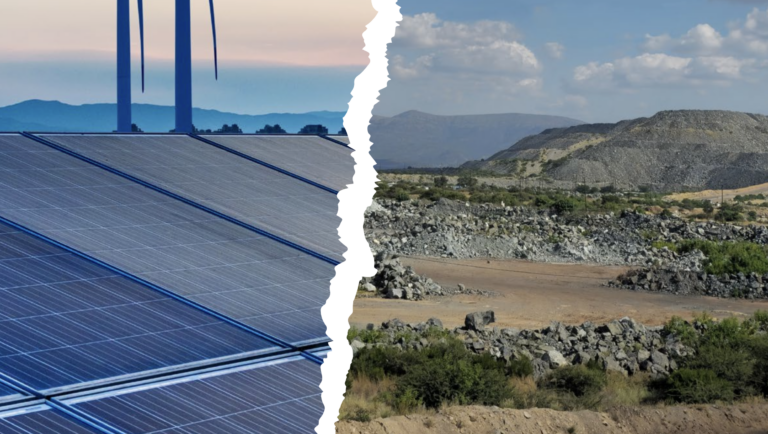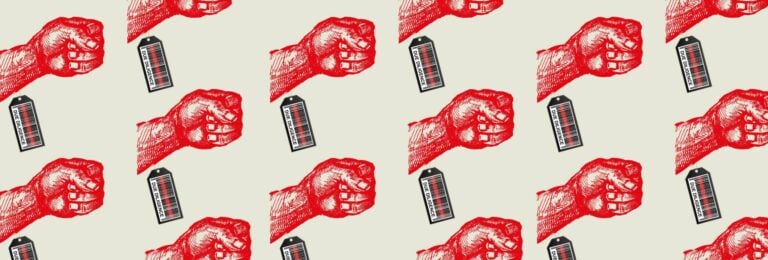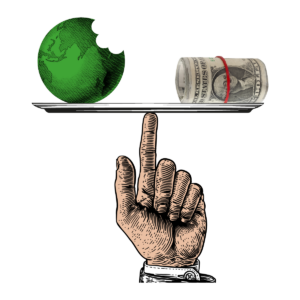Watching over the Electronics industry
The electronics industry is one of the world’s largest and fastest-growing industries, employing millions of workers across the globe to produce the electronic gadgets we all rely on every day. But the sector’s rapid growth comes with severe social and environmental costs for both people and the planet.
SOMO is helping to develop initiatives that directly address the problems in electronics supply chains.
The fundamental rights of workers are being violated on a massive scale in the electronics industry. Millions of people work in dangerous and toxic conditions – resulting in poor livelihoods and high rates of despair, injury, and even death. The electronic sector’s exponential growth also means it is slowly moving away from sustainability goals, particularly as the demand for virgin materials increases.
We are calling for the implementation of high social and environmental standards during the production of electronics and the sourcing of raw materials. We host the Good Electronics Network platform(opens in new window) and are one of the initiators of Electronics Watch(opens in new window) – an independent monitoring organisation working to achieve respect for labour rights in the global electronics industry. We also keep a close watch on the expansion of the electric vehicle industry and the human rights and environmental challenges it faces.
Highlighted Publications
-
The hidden harm of green hydrogen Published on:
 Ilona HartliefPosted in category:Publication
Ilona HartliefPosted in category:Publication Ilona Hartlief
Ilona Hartlief
-
Linking labour issues in China to global brands Published on:Posted in category:Publication

-
Chain of consequences Published on:
 Joshua RosenzweigPosted in category:Publication
Joshua RosenzweigPosted in category:Publication Joshua Rosenzweig
Joshua Rosenzweig
Tackling human rights violations in the electronics industry
The electronics industry is known for significant human rights and environmental challenges throughout its supply chain and product life cycle. Mining and processing minerals and waste erode and damage ecosystems, resulting in the pollution of water, soil, and air. The social impacts of mining materials and producing electronic devices in factories are also alarming.
Serious human rights violations have been documented in the contract manufacturing sector. Contract manufacturers are large multinationals that employ millions of workers to make the components and products they sell. They operate on low margins and are highly dependent on their clients, so they are often forced to accept the terms their buyers impose. This has a massive impact on their employees’ working conditions.
Miners and workers deserve fair wages and safe working conditions. We are calling for the scaling up of initiatives that improve conditions on the ground, as well as the livelihoods of workers and their communities in the electronics sector.
Tackling human rights due diligence
Companies have an obligation to uphold human rights in all their operational locations. However, instances of human rights violations and environmental harm linked to business activities still persist widely. People worldwide encounter significant difficulties in ensuring their rights are honored and obtaining redress for wrongdoings associated with corporate actions.

Lithium-ion batteries: challenges in the electric vehicle industry
Batteries and manufacturing are pivotal for the transition to cleaner mobility and energy systems. As the transportation sector accounted for approximately a quarter of global CO2 emissions in 2019, the widespread adoption of electric vehicles has become a crucial component of the energy transition. However, the soaring demand for batteries needed for these vehicles creates severe social and environmental consequences, raising doubts about the true sustainability of electric cars.
Lithium-ion batteries (Li-ion batteries) are set to dominate the electric vehicle market over the next decade. The increasing need for the minerals that are essential for battery production will inevitably lead to a surge in mining activities in certain countries in the foreseeable future. Unless immediate and substantial policy reforms are implemented, particularly concerning trade and corporate responsibility, this mining expansion will come at a considerable social and environmental cost.
While governments and citizens in the Global North are embracing and incentivising electric vehicles, the pressure for minerals to produce the batteries needed is being felt by communities in countries including Argentina, Bolivia, Chile, and the Democratic Republic of Congo.
We believe that structural change is urgently needed before it is too late, and here at SOMO, our focus is on battery supply chains. We are also promoting alternatives to help reduce emissions from road transport. To relieve the pressure on the planet, we must make it a top priority to reduce the demand for cars and batteries, thereby reducing mineral and energy use.
-
The battery paradox (pdf, 1.46 MB)

Responsible sourcing projects and regulations
When it comes to protecting the environment, we need to see a fundamental systemic change, starting with reducing resource consumption. We also need to see regulation that requires electronic products to be designed for longer use, reuse, reparability, and recyclability.
Responsible sourcing of minerals and materials is becoming a reality for more and more businesses and policy-makers. It is also increasingly being called for by non-governmental organisations (NGOs) and civil society.
We are involved in a coalition of 16 organisations – including Amnesty International, Earthworks, Finnwatch, Germanwatch, Human Rights Watch, Inclusive Development International, INKOTA, PowerShift, RAID, Transport & Environment, as well as human rights and environmental activists from producer countries. In response to proposed battery regulation by the EU, we urged the European Union (EU) to ensure responsible sourcing of the critical raw materials used in batteries.
The proposed battery regulation aims to establish mandatory requirements for all types of batteries sold in the EU market – portable, automotive, electric, and industrial. It includes provisions that demand battery importers and manufacturers should actively identify and address human rights and environmental abuses linked to the supply of crucial raw materials.
The European Parliament’s proposed list of raw materials(opens in new window) includes bauxite, copper, iron, cobalt, graphite, lithium, and nickel. However, national governments in the European Council are seeking to exclude bauxite, copper, and iron from the list.
Negotiations between the Council, Parliament, and Commission on the final draft regulation began on 20 April 2022. The coalition’s recommendation for responsible sourcing of bauxite, copper, and iron were a crucial aspect of these discussions.
Coordinating a coalition for raw materials
At SOMO, we are also actively engaged in establishing the “Raw Materials Coalition” – a European civil society network. The Civil Society Organisation (CSO) Coalition on Raw Materials brings together various CSOs from Brussels and across Europe, responding to the growing demand for metals in the economy, driven by the green and digital transitions.
While we acknowledge the critical importance of reducing greenhouse gas emissions, our primary focus is to ensure that EU decision-makers devise and implement policy solutions that lead to a transformed future. We want to make sure that the consumption of raw materials by the EU prioritises the well-being of people and the planet.
We are advocating for urgent action in implementing measures and targets to reduce EU demand and consumption of raw materials. We also want to establish stronger regulations on the mining sector and raw materials value chains within Europe and globally.
SOMO is also part of the RE-SOURCING Global Stakeholder Platform. Launched in 2020, RE-SOURCING is a four-year project that includes 12 international partners in and outside the EU. The project’s vision is to advance and establish responsible sourcing as a minimum requirement among EU and international stakeholders.
Do you need more information?
-

Alejandro González
Senior Researcher
Latest updates
-
 The hidden human costs linked to global supply chains in ChinaPosted in category:News
The hidden human costs linked to global supply chains in ChinaPosted in category:News Joshua RosenzweigPublished on:
Joshua RosenzweigPublished on: -
 Major brands sourcing from China lack public policies on responsible exitPosted in category:News
Major brands sourcing from China lack public policies on responsible exitPosted in category:News Joshua RosenzweigPublished on:
Joshua RosenzweigPublished on: -
Related Topics
Discover more of SOMO’s work and publications.





